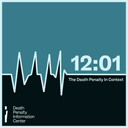
The California Supreme Court has upheld the state’s death-penalty statute against a constitutional challenge that had the potential to overturn the sentences of hundreds of people on California’s death row. In a unanimous ruling issued August 26, 2021 in People v. McDaniel, the court held that a capital jury need not unanimously agree to the existence of an aggravating circumstance before weighing it in the sentencing decision so long as every juror found that the prosecution had proven at least one aggravating circumstance that justified a death sentence beyond a reasonable doubt.
The issue came to the court in the case of Don’te Lamont McDaniel, who was convicted of two Los Angeles gang-related murders in 2008. At sentencing, McDaniel’s jury deadlocked on whether to recommend a life sentence or the death penalty. A second jury impaneled to retry the sentencing phase deliberated for four days before unanimously recommending the death penalty.
McDaniel argued that U.S. Supreme Court case law required every capital sentencing jury to agree that an aggravating circumstance had been proven before any juror could consider that circumstance and that the jury could impose a death sentence only if it unanimously agreed that aggravating circumstances outweighed mitigating circumstances beyond a reasonable doubt. His argument had the potential to overturn nearly every California death sentence in which a jury had been impaneled. As of September 3, 2021, the California Department of Corrections and Rehabilitation reported 697 people on the state’s death row.
McDaniel’s case drew supporting briefs from Governor Gavin Newsom and six progressive district attorneys in the state, including Chesa Boudin in San Francisco and George Gascón in Los Angeles. It was the first time any sitting governor in California had filed a brief in support of a death-row prisoner. Newsom argued that the state’s death penalty “was infected by racism” and that absence of a requirement of unanimous jury sentencing beyond a reasonable doubt contributed to systemic arbitrariness and discrimination.
Writing for the court, Justice Goodwin Liu said that under existing California decisions on the issue, “[t]he jury’s ultimate decision selecting the penalty in a capital case does not constitute ‘fact-finding,’” and therefore each juror could separately determine the justification for a death sentence. In a separate concurring opinion, Liu wrote, “There is a serious question whether our capital sentencing scheme is unconstitutional ….” He said, “Given the stakes for capital defendants, the prosecution, and the justice system, I urge this court, as well as other responsible officials sworn to uphold the Constitution, to revisit this issue at an appropriate time.” However, he said, McDaniel’s case was not the appropriate vehicle for addressing that issue.
The Right to Jury Fact-Finding in Capital Sentencing Proceedings
The United States Supreme Court ruled in March 2000 in Apprendi v. New Jersey that the Sixth Amendment provides a defendant the right to a unanimous jury determination, beyond a reasonable doubt, of “any fact (other than prior conviction) that increases the maximum penalty for a crime.” Two years later, in Ring v. Arizona, the Court held that the penalty phase of a capital trial fell within the Sixth Amendment jury guarantee and that a capital defendant’s right to a jury trial included the right to require the government to prove beyond a reasonable doubt every fact necessary to impose the death penalty.
The court confined its discussion to the scope of the right to a penalty-phase jury, separately addressing the questions of unanimity and proof beyond a reasonable doubt. Ultimately, it ruled that neither were required. Lui wrote that neither the California constitution nor state law provided “a basis to require unanimity in the jury’s determination of factually disputed aggravating circumstances.” On the burden of proof issue, the court said: “Even if the jury trial right under [California’s constitution] is applicable to the penalty phase of a capital trial and encompasses the right to factual findings beyond a reasonable doubt, we do not understand it to require the penalty phase jury to select the appropriate punishment beyond a reasonable doubt.”
The court did not address the other issues raised in Governor Newsom’s or the prosecutors’ amicus briefs. “These claims,” the court wrote, “sound in equal protection, due process, or the Eighth Amendment’s prohibition on cruel and unusual punishment, and do not bear directly on the specific state law questions before us.”
Elisabeth Semel, co-director of the UC Berkeley Death Penalty Clinic and co-author of Newsom’s legal brief, told the Associated Press, “It doesn’t change the fact that the death penalty system in California does discriminate against people of color, particularly Black defendants. And there’s ample data to demonstrate that.”
On September 10, McDaniel’s lawyers filed a petition seeking reargument of the case.
Maura Dolan, California’s top court declines to overhaul death penalty, Los Angeles Times, August 26, 2021; Don Thompson, California Supreme Court Upholds Death Penalty Rules, Associated Press, August 26, 2021; Bob Egelko, State Supreme Court rejects arguments by death penalty opponents over sentencing criteria, San Francisco Chronicle, August 26, 2021; Matthew Renda, California high court upholds death sentence in a precedent-setting case, Courthouse News Service, August 26, 2021.
Read the California Supreme Court’s decision in People v. McDaniel.



